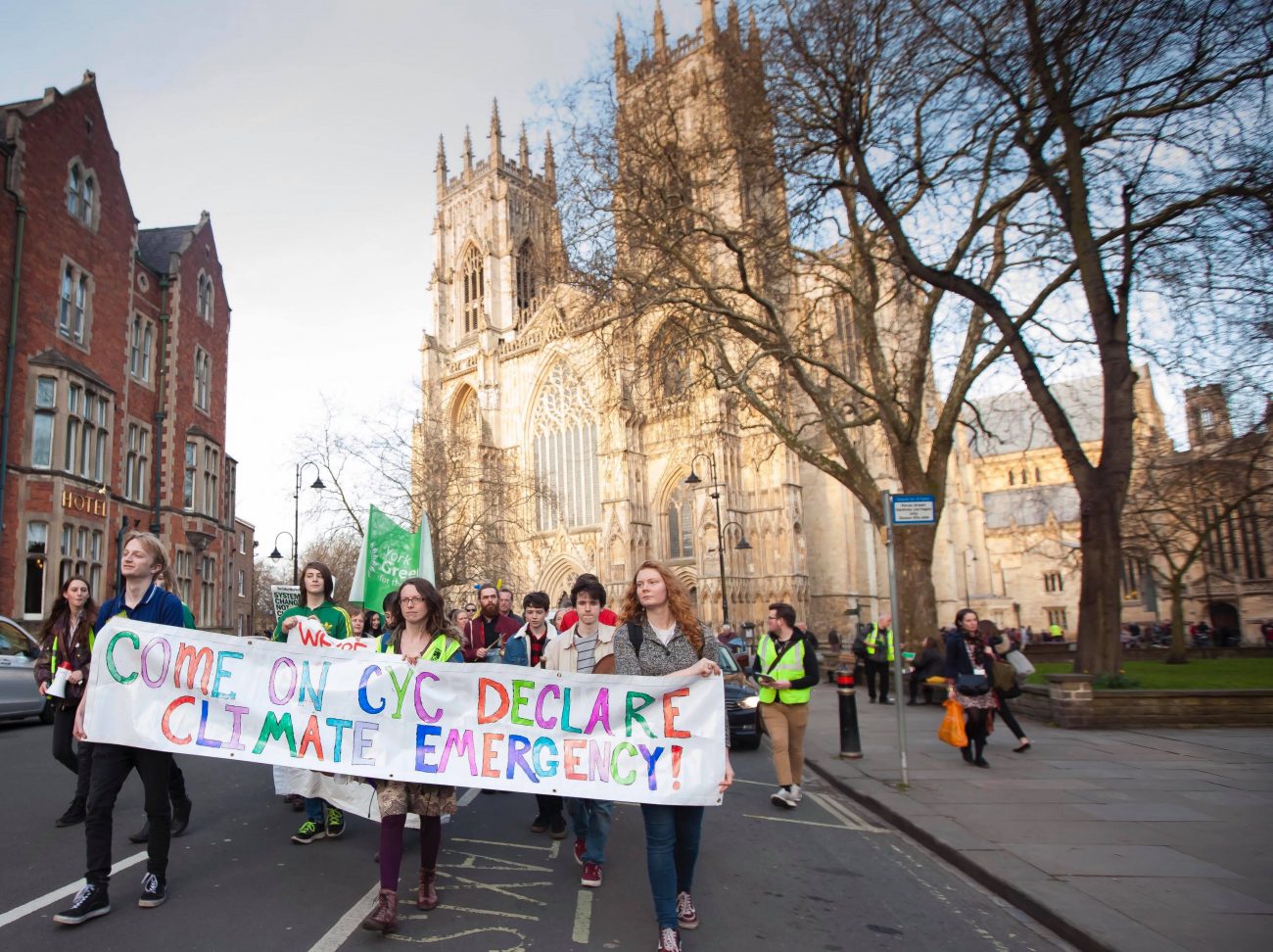York will not hit its target of net zero carbon emissions by 2030 with its current action plan, according to council documents.
Climate campaigners urged the councillor in charge of climate change, Cllr Paula Widdowson, to take bolder action when an update on the City of York Council’s progress was discussed on Wednesday.
Nearly £345m of investment from a variety of sources has been committed to respond to the climate emergency in York, but the council admits more money will be needed.
The authority has listed nearly 60 actions across eight ‘themes’ which are currently either complete, in progress, or at the feasibility stage, but these alone will not be enough to hit net zero carbon.
Kate Ravilious, a freelance science journalist, said: “We’re in the midst of a climate emergency and the science couldn’t be clearer on the need for action.
“Three years ago, the council committed to a net zero city by 2030, and yet this climate action update confesses that the current action plan will not achieve the net zero ambition. Why is this council giving up before we’ve even started?”
The council’s draft climate change strategy was criticised by members of the Green, Liberal Democrat and Labour parties when it was discussed last month. The final document is set to be completed by October.
Biggest carbon footprints
According to university-backed research, the York areas with the highest average carbon footprint per person are parts of Bishopthorpe, Copmanthorpe and Dringhouses and Woodthorpe, Cllr Widdowson’s own ward.
Campaigner Geoff Beacon said: “We need a significant amount of publicity and expenditure going into telling the worst offenders…that they should do better.”
[adrotate group=”3″]
Chris Copland, a Fishergate resident and environment co-ordinator at York Labour, said: “We should be looking for a longstanding commitment and consensus that sits above party politics.”
York resident and Professor of Sustainability Research at University of Leeds John Barrett said: “With the City of York Council committing to reduce its GHG emissions to net zero by 2030, it is essential that the plan released in October clearly demonstrates how this will be achieved.
“The council commitment is currently for its own activities and a target to reduce the carbon footprint of the whole city would be a more meaningful response to the climate crisis.”
Cllr Widdowson said the climate change strategy had a ten year vision and said the current actions would be built on in the coming years.
She added: “The activity is not limited to but includes: moving all of the council energy to renewable…replacing all of the council’s less than three-and-a-half tonne vehicles with electric vehicles over the next three years; a massive increase in EV (electric vehicle) charging ability across the city; creating the largest community woodland in England [and] significant flood scheme activity which is protecting more than 2,000 properties.”
York Labour deputy leader, Cllr Pete Kilbane, said the council’s plans “lack political ambition”.
Too many of the council’s actions on investment and carbon savings were listed as ‘to be confirmed’ or ‘not applicable’, Cllr Kilbane said.
[tptn_list limit=3 daily=1 hour_range=1]
He added: “You get a feeling figures have been thrown in to try and boost up the figures all around.
“What this report card shows is a failure to tackle the climate change crisis that the city is facing.”
Claire Foale, assistant director of policy and strategy, said: “It is worth noting that this is the start of an action plan. We believe this is the baseline and it sets out those priorities that will become the mid-to-longer term action plan that will respond and take us up to 2030.”
